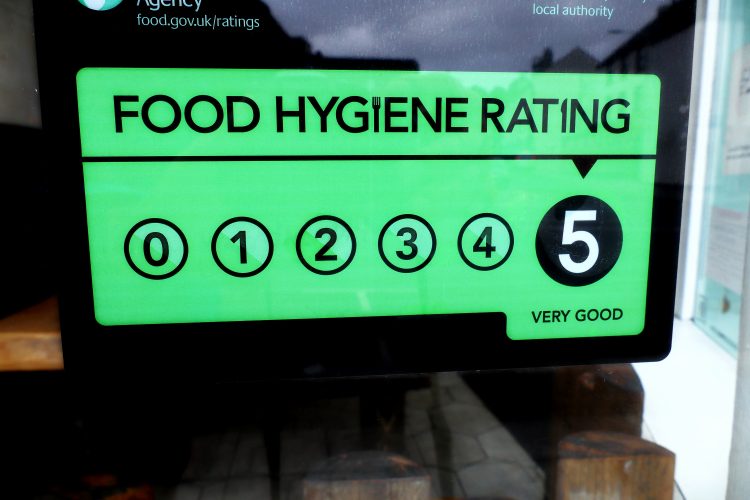FSA and FSS call on government to address staff shortages
- Like
- Digg
- Del
- Tumblr
- VKontakte
- Buffer
- Love This
- Odnoklassniki
- Meneame
- Blogger
- Amazon
- Yahoo Mail
- Gmail
- AOL
- Newsvine
- HackerNews
- Evernote
- MySpace
- Mail.ru
- Viadeo
- Line
- Comments
- Yummly
- SMS
- Viber
- Telegram
- Subscribe
- Skype
- Facebook Messenger
- Kakao
- LiveJournal
- Yammer
- Edgar
- Fintel
- Mix
- Instapaper
- Copy Link
Posted: 8 November 2023 | Joshua Minchin (New Food) | No comments yet
The 2022 “Our Food” report has warned that staff shortages could make it harder to identify food safety threats.


The annual “Our Food” report, published by the Food Standards Agency (FSA) and Food Standards Scotland (FSS) has warned that under-resourced staffing levels could compromise the safety of the UK’s food system.
Although the report declared that food standards remained “stable” in 2022, it also identified shortages in key positions within the UK’s food regulators, somehting it says could make it more difficult to identify and monitor threats moving forwards.
“The food system across the UK experienced significant challenges throughout 2022, with the rising cost-of-living and inflation impacting grocery bills for consumers, and food businesses feeling the pressure of labour shortages and increased supply chain cost,” said Professor Susan Jebb, Chair of the Food Standards Agency.
“Despite these pressures, I’m encouraged that our report indicates that overall, food standards have remained stable. However, food safety and standards hinge on good procedures and skilled people to ensure that the right checks are carried out. It takes time to recruit and develop these skills and we worry that without specific action to boost the workforce, specifically to recruit more official veterinarians and local authority inspectors, it will not be possible to maintain these high standards in the future.
“Failure to recruit and train professionals to key posts can have reverberations for many years to come. We ask governments across the UK, and others, to work with us to address these matters in the coming year so that people in the UK can continue to have food they can trust, and the strong reputation of British food abroad is maintained.”
Heather Kelman, Chair of Food Standards Scotland, called it “encouraging” that food safety standards had remained stable despite significant challenges, yet also reminded lawmakers that sufficient resource was vital to protect the UK’s food and beverage industry.
“However, we must recognise the very significant challenges ahead and the potential problems that a lack of resourcing, specifically within environmental health officer and official veterinarian roles, may cause to the overall food system. It is now more important than ever for those who govern the system, as well as everyone involved in food production, retail and distribution, to work together to ensure food is safe and consumers and trade are protected.
“It is critical that, together, we do everything we can to ensure we have a modernised system of assurance to support businesses that provide safe food for everyone and that the UK’s high food standards are maintained, in spite of the cost and workforce pressures we continue to face.”
The FSA says workforce data shows a 14 percent decline in food hygiene posts in Local Authorities in England, Wales and Northern Ireland over the last decade, with over 13 percent of available posts vacant. In Scotland, the number of food law officers (undertaking both food hygiene and food standards work) has fallen by just over a quarter (25.5 percent) compared to 2016/17.
The decline doesn’t stop there either. FSA data claims the number of food standards officers in the UK has fallen by a whopping 45 percent compared to a decade earlier, while there has been a decline of 27 percent of new vets joining the profession, making Official Veterinarians hard to come by.
The FSA and FSS say they are calling on “government, local authorities, professional bodies and industry to address the decline in local authority Trading Standards officers, Environmental Health and Food Law officers to ensure food standards are maintained; tackle the shortage of Official Veterinarians to protect animal health and welfare and trade and assure food hygiene is maintained; share more and better-quality information across the food industry to help stop criminal gangs and tackle food crime that costs the UK up to £2 billion per year; and introduce import controls on food imported from the EU to help reduce the risk of unsafe food entering the UK from the EU.”
For more in-depth analysis of the “Our Food” report subscribe to New Food today.
Related topics
Food Safety, Recruitment & workforce, Regulation & Legislation









